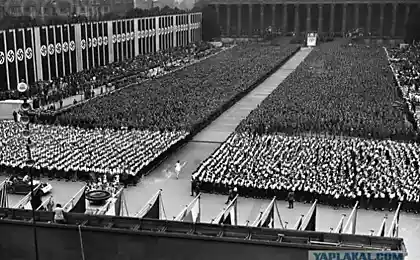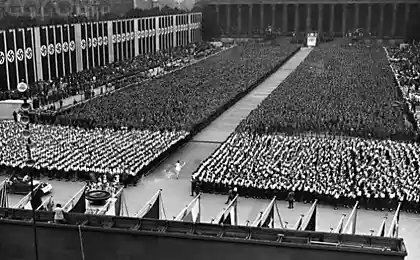447
6 things you can learn from elite athletes
Olympic athletes inspire us with their strict discipline and natural talent, setting records and aiming to be faster, higher, stronger. Their Executive and energetic spirit inspires us to take new challenges. Whether the goal of running your first marathon, improve your Golf game or to participate in triathlon championship — there is always something to learn from the best of the best.
"The Olympics symbolizes for us the chance to expand the boundaries of human capabilities," says Chris Sebelski, associate Professor of physical therapy at the University of St. Louis. "As I tell my students, if you want to compete at a high level, emulate those already on top."
1. Set a goal and divide it into parts
The Olympic level athletes are training to obtain their gold medal as part of the process of four years of training. After the setting a goal to medal or set a world record, athletes and their coach to break the training process into tasks and time periods with smaller goals that mark progress along the entire path of preparation, says Sebelski.
For example, if you are training to get in shape for Hiking over rough terrain, you should aim for passing five kilometers every day during the first two weeks and bringing the route length up to 18 miles by the end of the tenth week. Using this method, you will see that the goal that seemed unattainable, it is available.
2. General physical training
The athletic skills of Olympic athletes in your discipline can be unbeatable, but they also use other skills.
Non-specific training that includes General developmental exercises, reduces the risk of overtraining and helps avoid injury. It also improves the condition of muscles and stimulates the brain, so you won't get bored from a large number of repetitions.
Physical training is also useful for the preparation of those sports that you can't do every day. If you live far from the mountains and are planning a ski vacation and your goal is to move from a "blue" slope to the "black", don't be discouraged! A few months before the big trip be prepared for it in the gym, focus on strength training of the lower limbs, work on balance and endurance, such as on the elliptical trainer. All these activities will help you to get maximum enjoyment from the trip.
3. Practice with other
Olympians don't train alone or exclusively with athletes on their level. You will understand that a high level of motivation support not only the competitive spirit and enthusiasm, but also to achieve success in joint sessions with other athletes of different levels.
If you do run, run with different people. Be paired with someone who runs slower than you, and on this day you will be on the course longer and work endurance. The other day go the distance with someone who runs faster than your average speed and you'll get a more intense cardio.
4. Create a team
Olympic athletes do not build illusions about the fact that they can achieve anything alone, and you shouldn't be doing it.
"While we are fascinated by the idea that an Olympic athlete — hero, we forget that his success was directly involved a large number of other people. To show the world one Olympic athlete takes a village," said Cebulski. "We must not forget that we also need these resources."
Think about the people that will help you to accomplish your goal. You may find that you benefit working with a coach, dietician, instructor of physical therapy or doctor. Realize that help is available in many different forms and determine what suits you. This may be an individual lesson with a trainer, a course of dietetics, or chat online with like-minded people.
5. Find the motivation
You may feel silly when off in the gym under my iPod, but remember that Olympians use lots of different ways in order to cope with their emotions. For example, this year several athletes stated that they had turned to yoga, meditation and even watched their favorite TV shows to calm down before an important event and even to cheer myself up before a competition.
Take a page out of their plan and use your inspiration. You can feed your passion, finding the way that is your primary motivation, be it music, a significant success or a PEP talk from the coach.
Forty six million two hundred eighty six thousand one hundred forty seven
6. Treat yourself like an Olympian
For most of us our professional, family and personal commitments mean we can't spend as many waking hours to training as possible world Champions. But you can try on the mindset of the Olympian at that time you have taken to training after spending the hour with the dedication of a true athlete. The results are encouraging, says Sebelski.
"Practice a couple of weeks with focus and discipline, and lo and behold, you'll be surprised at what you can do," said Cebulski.
Sebelski said that the sense of accomplishment and pride that causes the desire to improve your personal best is something that can be experienced by all.
"They say that the marathon is currently Everest for the layman. But this is true for every sport," said Cebulski. "You can prepare for League bowling Sunday evening, if that's your passion. The bowling championship may be your Olympics." Regardless of the scale of your goal, you must have at least a single training experience to achieve the physical goal you set for yourself. Crossing that finish line — with what incomparable feeling.
Source: sportmedicine.ru























